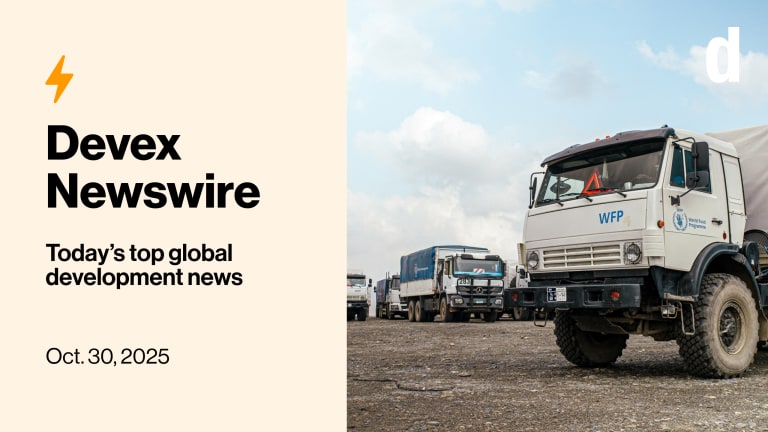
The Russian invasion of Ukraine has already inflicted more than $100 billion in damages to infrastructure and other assets, and it is likely to cause a major global food crisis, a key adviser to Ukrainian President Volodymyr Zelenskyy said Thursday.
How Russia’s war in Ukraine endangers global food security
In this edition of Devex Dish: The humanitarian cost of the war is mounting disturbingly quickly and causing rippling effects worldwide; the IPCC report’s implications for agriculture; and tracing your chocolate bar.
Ukraine is a major food exporter, accounting for nearly half the global export market of sunflower oil and double-digit percentages of certain grains. Farmers will need to begin work in the fields this month ahead of the growing season, said Oleg Ustenko, Zelenskyy’s chief economic adviser, during a virtual meeting with the Peterson Institute for International Economics.
"If we are not able to complete our work in this period of time, we [will not produce] anything at the end of the day. This is a big challenge for us and for the international markets,” he said, warning about spiking inflation.
Cost of sanctions: Ustenko pushed for tougher sanctions on Russia but said the international community will also have to step up to help countries affected by higher prices.
"What is really needed to be done is to introduce a full embargo, worldwide, on Russian oil and gas. This is blood money,” he said. Ustenko also called for nations to send Ukraine more arms and ammunition.
His comments came just as the International Monetary Fund warned that Africa was “particularly vulnerable” to consequences of the war, including increased food prices and higher fuel costs.
Peace fund: Ustenko lamented that Ukraine’s economy — whose gross domestic product was over $155 billion in 2020 — was being devastated. Half of the businesses in the country have shut down, he said. He praised the international community for stepping up with support but said more would be needed. Economic backing has come from the United States, European Union, World Bank, and IMF.
Ustenko also suggested that seized Russian assets could be used for a “peace fund” to finance Ukraine’s reconstruction.


